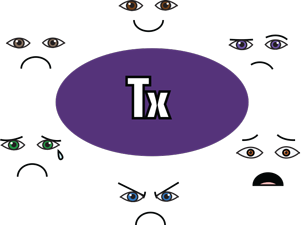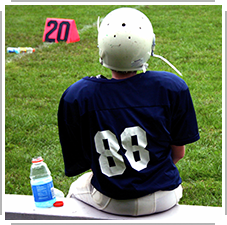Tx: Emotional SxS
 Courtesy ThinkStock: Photodisc |
Emotional adjustment will involve helping the young person reintegrate into the school environment. Reintegration requires finding appropriate accommodations for all areas of life at school. |
ConclusionWith the help of a treatment team including diverse medical professionals, an ever-expanding array of diagnostic and treatment resources, and a recovery team including the patient and his or her support system, the licensed health care professional can guide the young person to the best possible outcomes following mild traumatic brain injury. To remain well-equipped for treating young concussion sufferers, you are encouraged to return to this site for updated resources and information regarding best practices. |
 Courtesy ThinkStock: Comstock Images
|






